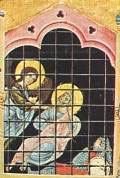|
 |
Program: Free the Prisoners |
 |
|
|
|
 Some case histories Some case histories
The “transitory prisons” of the Democratic Republic of Congo
The Democratic Republic of Congo is not just the largest nation in sub-Saharan Africa. It is also, despite the rich bounty of the natural resources it has at its disposal, a place of great suffering: long years of war have produced widespread poverty. The economic restructuring plans imposed by international agencies actually hit hardest at the more vulnerable social strata, among whom those in the country’s prisons must be numbered. Cuts in spending on the judiciary and on penitentiary institutions have merely added to the hardships of the detainees, who are forced to live in truly unimaginable conditions. The organization of Congo’s justice system is nonetheless meticulous: each police station disposes of a “transitory prison” – the so-called “cachot”. In these cells all those guilty of having committed minor offences, or who have otherwise been accused of illegal acts, are shut away.
The system envisages a possible way out of the “cachot” via the payment of a fine, but those who don’t have such sums at their disposal – a sum sometimes quite arbitrarily set – is imprisoned in Kinshasa’s central prison, often without being charged on any actual imputable count. And there, in most cases, they remain – indefinitely, forgotten.
|
|
|
If you are poor, then, you may find yourself shut up for weeks, months, sometimes for years, in an overcrowded prison (the main gaol presently holds 4,300 detainees) maybe just on account of somebody’s suspicions, or for a minor offence.
And here prison means malnutrition, lack of basic hygiene, years lost from your life, a future subject to violence and misery.
But the destinies of these people can be altered through a small act of kindness and solidarity.
Father Simon is a regular visitor to the prisoners in the “cachot” and comes across many tales of poverty and of desperation…which only required a little help to find a solution.
Tales like that of G. and C.: The cause of their quarrel was a truly trivial one – try as they may, they couldn’t manage to explain what their argument had been about. One or two beers too many certainly hadn’t helped them keep level heads, and the insults they directed at the police officer who tried to separate them while they exchanged punches in the street landed them straight in the “transitory prison”.
A 300 euro fine is a prohibitive sum for any young Congolese, let alone an unemployed one, and the two friends were facing an indefinite stay in prison. But it’s not such a difficult amount to muster with a little effort and fellow feeling: the 600 euro collected by the Community allowed the two to return home.
E., a young student, had also been shut away in “transitory prison” for an insult given to a policeman who had stopped him at a check point. He, too, would have been transferred to the central prison had he not found the 400 euro to pay his fine. Prison would have laid waste his existence as a university student, his dream of becoming a doctor, his desire to redeem the lives of others.
Today, E. has returned to his studies, thanks to the 400 euro donation, gathered by the Community, helping him pay his fine and regain his freedom. |
|
|
|
|
|